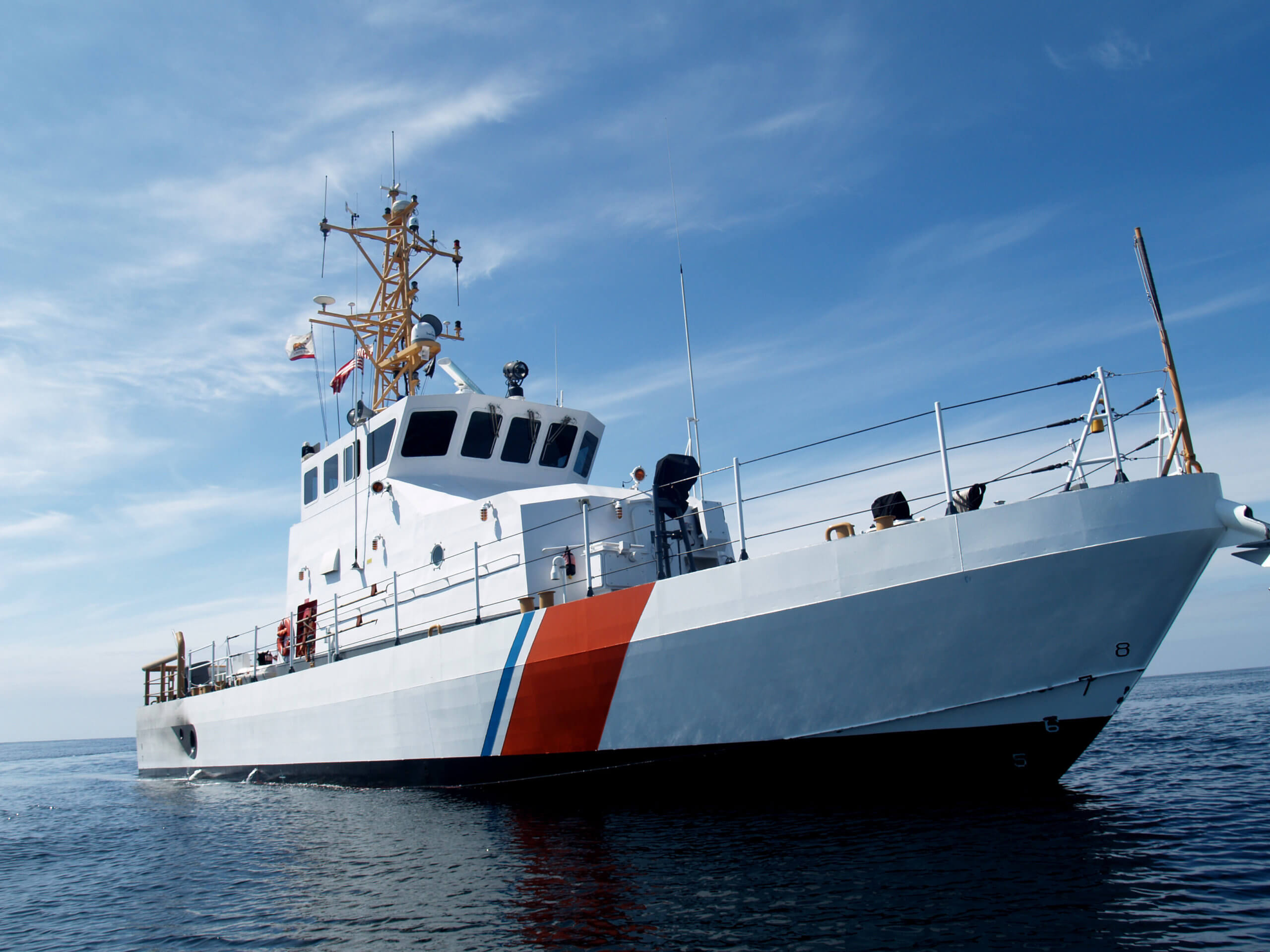Going Down For The Third (And Last) Time

Obviously, the most top-of-mind danger that all mariners face is drowning. We live, work and play in a marine environment — a hostile marine environment, if one is not careful. And, even you are careful, things happen. This column is about that.
An Ounce of Prevention
. . . is better than a pound of cure, so bear the following in mind. First, we must all be wary of hypothermia. The symptoms to look for in others or yourself are the actions of someone who seems to have been drinking heavily — except they haven’t been. Clumsiness, slurred speech, poor fine motor skills, crankiness . . . Actions you can take to prevent getting hypothermic are:
1. Keep dry, spare clothes aboard. They can even be added on top of wet clothing if need be . . .
2. How’d your clothes get wet? Could be from “working the boat” in foul weather or, worse, you fell overboard. The only thing worse than falling overboard is not getting back aboard! More on this below . . .
3. To help yourself immeasurably, always wear your life jacket. Inhaling cold water is a killer and that will be very hard NOT to do if you are under water . . .
4. Stay away from booze, period. Unlike the St. Bernard rescue dog stories, booze doesn’t help you survive hypothermia.
He Fell Off The Dock And Never Came Back Up
How many stories have you heard of over a lifetime where a seemingly minor event, like falling off a dock due to stumbling and landing in cold water, results in an almost incomprehensible death by drowning? It happens and it shouldn’t. How come the victim couldn’t help themselves?
Cold Shock/Gasp Reflex/Dry Drowning
Years ago, while training with my son to be part of an USCGAux Cold Water team, we all received a workshop on developing an understanding of something called “Cold Shock” or the “Gasp Reflex.” Scientists and doctors were just becoming aware of why someone could drown “instantly” upon hitting the water. Basically, in water below 70-degrees F, which we are certainly boating in during the early months of the spring and late months of the fall, a number of nearly instant and deadly things can go wrong, even if you fall just a few inches from the dock to the water:
1. Even with your head above water, a splash of cold water in your face from a boat’s wake as it cruises by you can cause you to involuntarily inhale water, which is a killer. Not swallowing it down your throat into your stomach but inhaling it into your lungs. This is the “gasp reflex.”
2. In some people, the reaction doesn’t get that far into their bodies. They hit the cold water and, as soon as it touches the back of their throat, it closes up. The spasm stops the water from getting into the body, which is the biological intent, but it also stops air from getting to the lungs. The person bobs back to the surface (their lungs are full of air) and they suffocate in the open water, unable to breathe due to a blocked air passageway. This is what is now called “dry drowning.” There is no water in the lungs. Nor is there any oxygen. I’ve seen a BoatUS report that stated that 15 to 20 percent of all drownings are “dry drownings.”
3. When the difference between your body temperature and the water temperature is greater than 30 degrees, the chance of a heart attack from the sudden immersion goes up dramatically.
4. Even something as simple as a racing heart from shock and fear can create hyperventilating on the part of the victim. Dizziness followed by unconsciousness results as the ratio of oxygen/carbon dioxide changes in the victim’s blood system.
So, if you survive all this, then you will have to deal with the potential effects of hypothermia. Remember, despite all our advances in science and technology, our bodies can survive only in a pretty narrow range of internal core temperatures. How about those aches and pains you feel in your muscles when you get cold? A drop of only 1.5 degrees from good old’ 98.6 is all it takes. A few more degrees, say five or six, and you’ll stop shivering because now your body can’t shiver anymore — there isn’t enough energy in your body to shiver, much less climb into a boat or onto a dock. Another four or five degrees from there and the heart is now struggling to gather enough energy from your internal core to beat.
So, if you fall in, get out!
BTW, if you are interested in being part of USCG Forces, email me at JoinUSCGAux@aol.com or go direct to the D1SR Human Resources department. The folks there are in charge of new members matters at DSO-HR and they will help you “get in this thing…”



